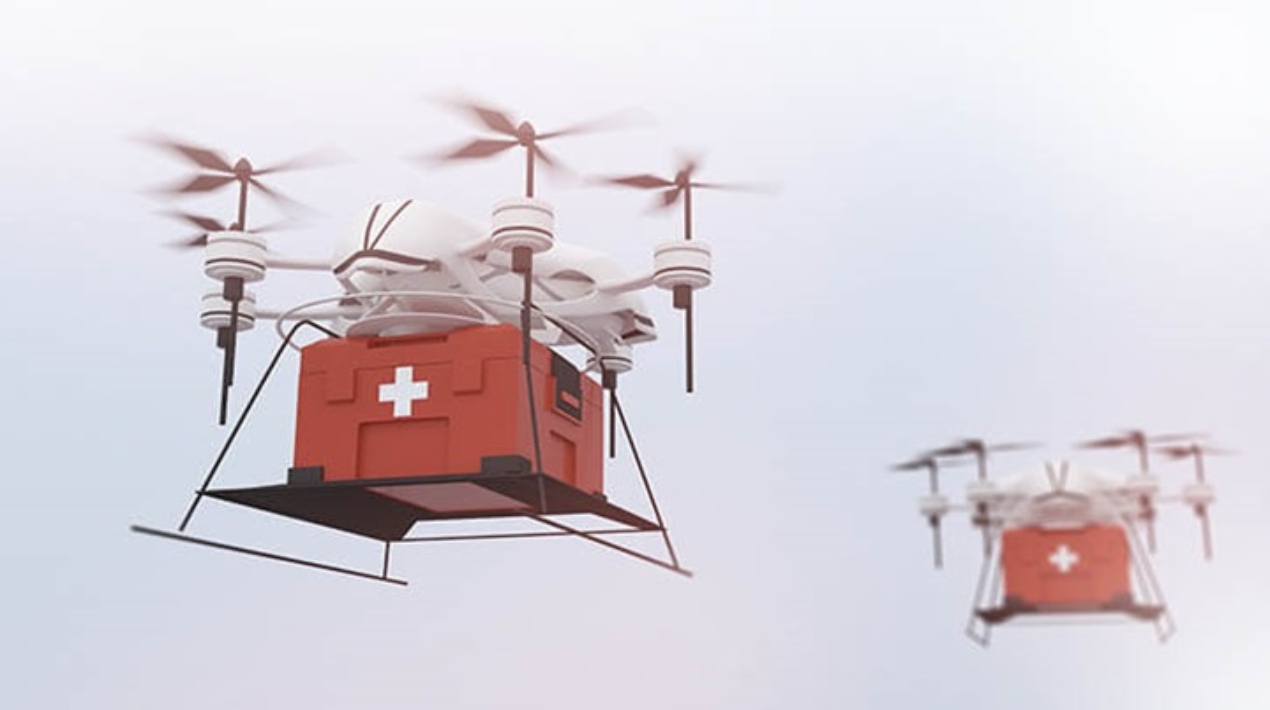
Providing blood products to forward-deployed medics and corpsmen as soon as possible is one of the best methods to preserve lives during combat operations since blood loss is the primary cause of preventable death on the battlefield.
“We were pretty reliant on medevac ‘dust off’ to deliver our blood,” says Air Force Co. (Dr) Stacy Shackelford, chief of the Joint Trauma System. However, Stacy cautioned that it might be harder in future battles with a “near-peer” foe. Even though they require blood transfusions or other serious medical attention, injured soldiers may have to stay at the front lines for days.
When the U.S. military-maintained control of the skies and a close-by network of medical facilities during the conflicts in Iraq and Afghanistan, getting the necessary blood products to injured warfighters was often not a significant difficulty.
Some government agencies are financing several other advancements to enhance the use of drones in the field of war. However, it will be difficult to restock with blood and other medical supplies utilising drones.
There are clearly compromises made between some of these many platforms like using drones and ensuring that the vehicle is swift and somewhat covert. Drones also have an enormous battery that will enable them to stay in the air for a lot longer if it needs to wait anywhere in case there is a problem.
There has also been discussion about equipping some operational combat hardware drones with alternate payloads capable of delivering water, medical supplies, blood, and other needed supplies. Moreover, the fundamental problem with blood resupply is that it needs to be kept at specified temperatures, just like many drugs, including some antibiotics and painkillers.
The biggest technological challenges now are the ability to maintain the temperatures inside those drone payloads very consistently, at a variety of altitudes, and in a variety of different ambient conditions, for potentially long periods of time, without using up too much power from the system itself.
Drones were employed by the Marine Corps to replenish supplies during an exercise in Australia. In Rwanda and Uganda, drones have also been utilised to deliver medical supplies to remote places across mountain ranges and inclement weather.
Soon, operational forces are beginning to consider the employment of drones for resolving probable near-peer wars. Long-term efforts are being made in several directions, including using drones to remove patients. Some of these platforms, which can swiftly evacuate sick individuals without endangering other employees in potentially contested airspace, are also being studied.
Technology continues to improve. When it comes to drones it may be just a matter of keeping the drones low to the ground, and that an artificial intelligence system is piloting them.
Hopefully, AI will be faster reacting than a human would be. The long-term goal is to have some sort of robotics onboard these drones that would be doing medical care to the patient during transport.
Furthermore, a new Defense Advanced Research Projects Agency initiative called “The in the Moment Programme” aims to ultimately give AI systems the same complex, rapid decision-making capabilities as military medical staff and trauma surgeons on the battlefield based on algorithms of care and decision-making capabilities.
Technology keeps getting better. It could only be necessary to keep drones close to the ground and that they are being flown by an AI system.
















